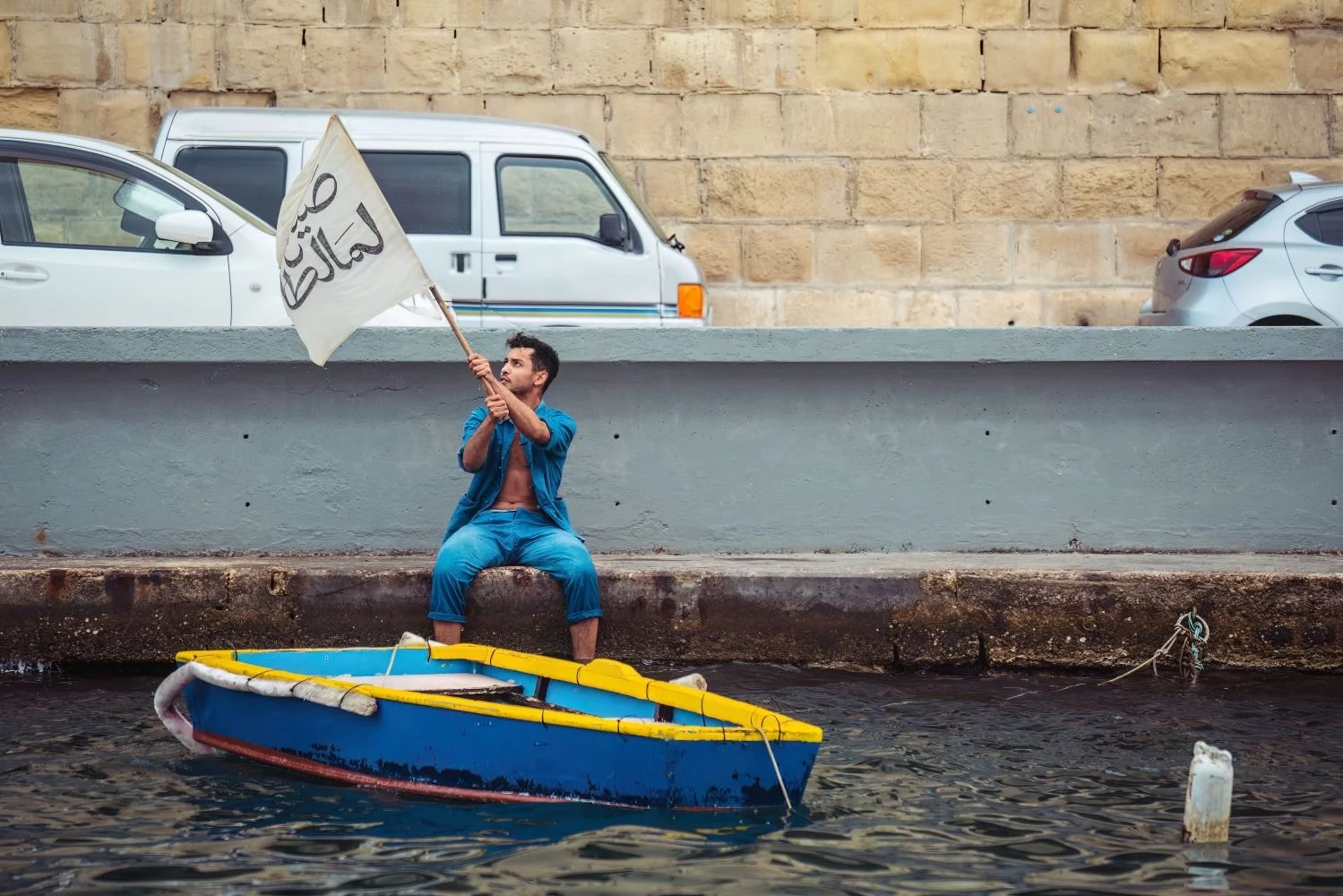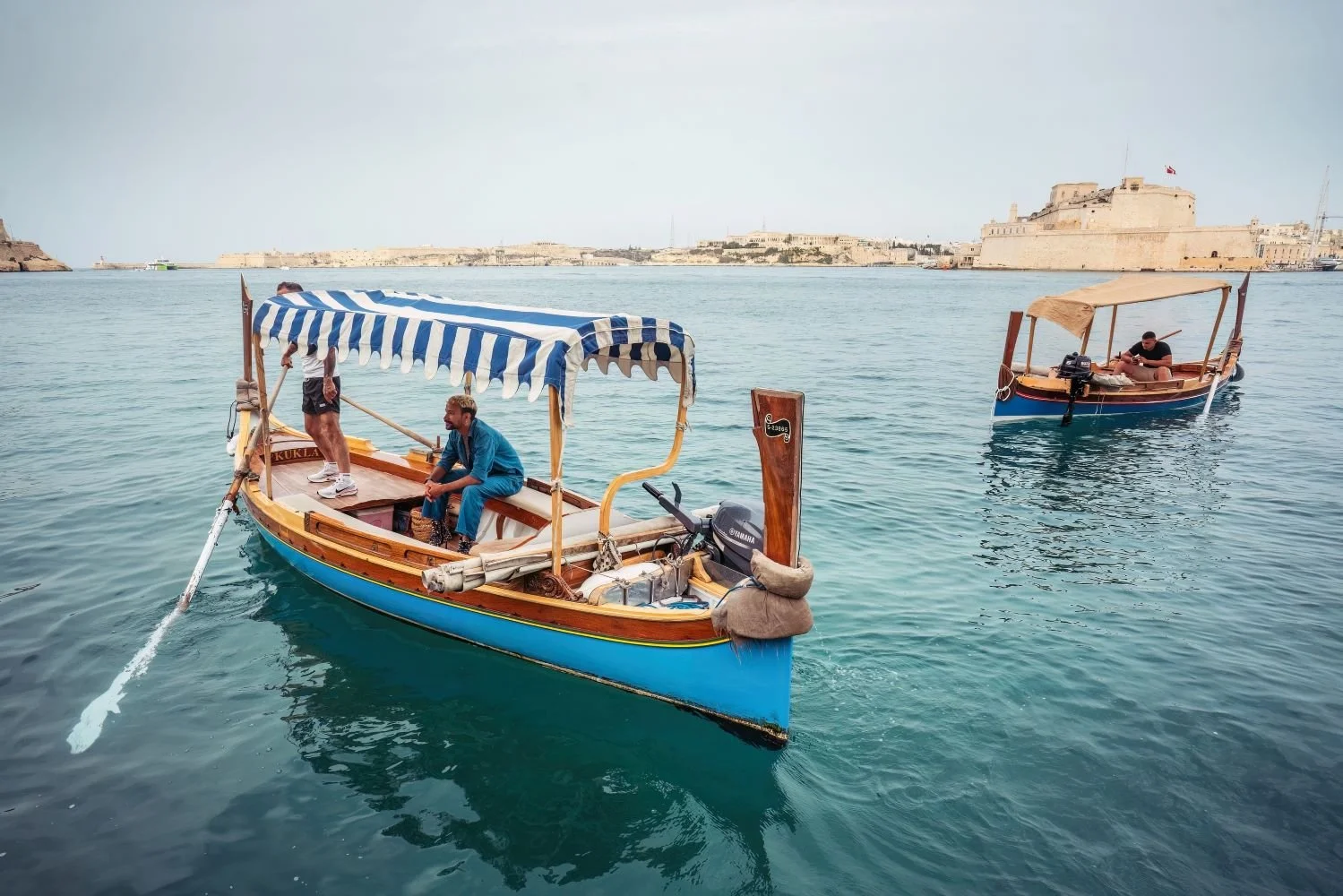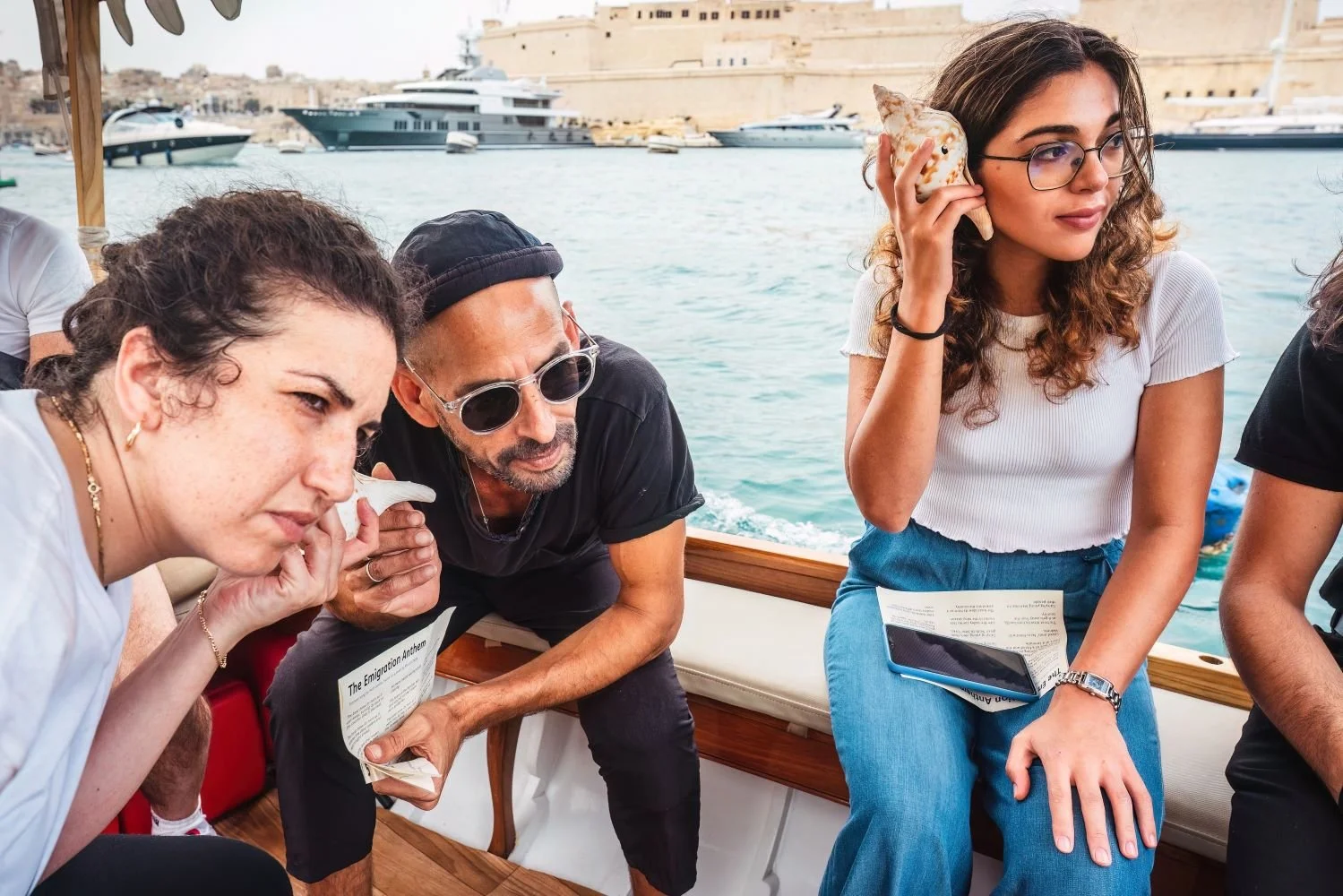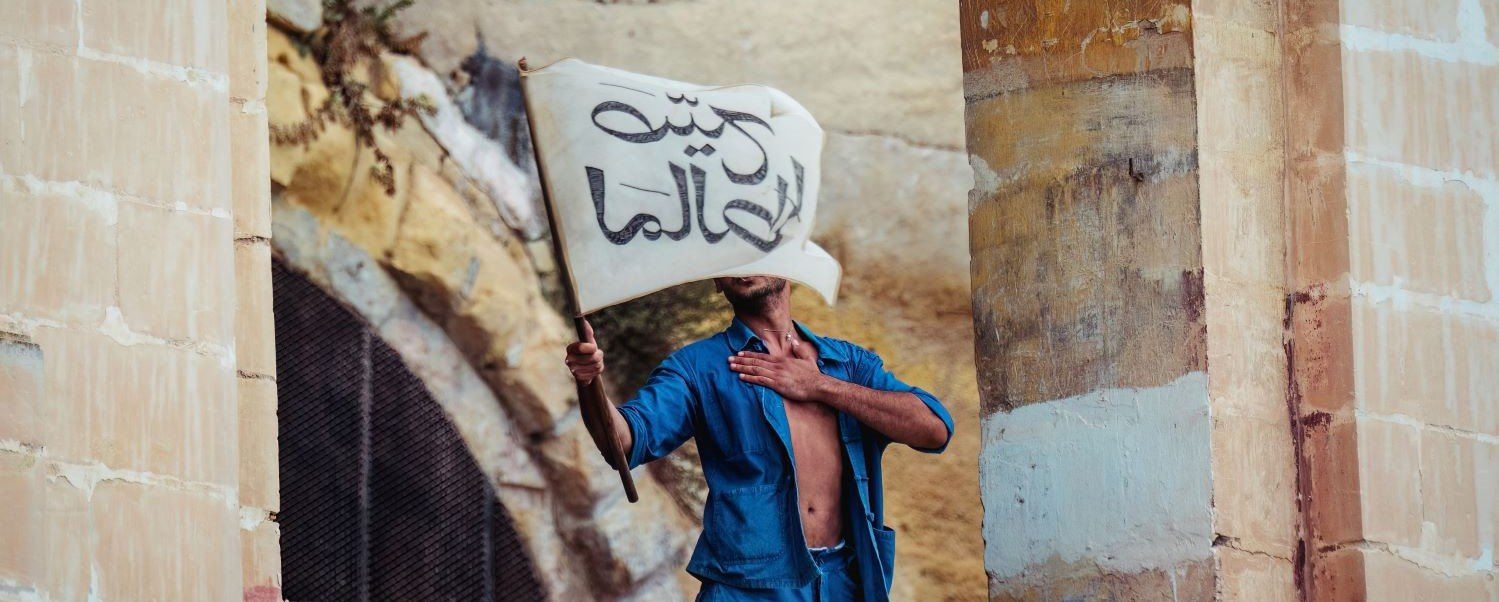
Sejjaħ lil Malta
Lascaris Wharf, Valletta
14, 15, 16, June 2024
Booking recommended.
Please note: the performance is free, however you will need to pay €5 directly to the boatman for the dgħajsa crossing.
If you need us to cover this cost, please include a message in your event booking.
Photographs and videos will be taken at the event for use on social media, in the press, and other marketing materials and publications. By attending this performance, you consent to the photographing, filming and using your image for these purposes. The photographs and recordings will be submitted to European Education and Culture Executive Agency (EACEA) for reporting purposes.
If you do not want to be filmed or photographed, please include a message in your event booking.
"Sejjaħ lil Malta" in Maltese sounds and means the exact same thing in Arabic: "Call Malta."
The phrase was the response of the Italian Coast Guard on 10 October 2013 when a sinking boat carrying refugees sent out a distress call for help. Thirty-four people died at sea that day-killed through contested maritime borders.
Sejjaħ lil Malta invites the audience to travel on traditional Maltese boats (Dgħajjes) while listening to seashells picked up from the shores of Sousse in Tunisia. This site-specific performance explores our changing perception of the Mediterranean Sea, a fluctuating space of many borders and a death trap for those seeking refuge. The Dgħajjes themselves, once a sign of movement and local craft, now tell a story of a privatised Mediterranean seashore. The seashells whisper oral histories from the community of boat drivers in Valletta struggling to make ends meet, refugees who survived the journey in the Mediterranean, and two artists, one in Sousse and another in Valletta, collaborating across the sea. Sejjaħ lil Malta is the sound of the Mediterranean as a border.
Site-specific performance by Tania El Khoury
Performers: Mohamed Ali "Dali" Aguerbi and Chakib Zidi
Boat Driver: Rudy Camilleri
Narration and music: Yasmin Kuymizakis
Singers: Mouheddine "Huita" Chalchoule and Yasmin Kuymizakis Technical production: Mohamed Ali "Dali" Aguerbi
Graphic Design and Illustrations: Haitham Haddad
English Translation: Ziad Abu-Rish
Maltese Translation: Yasmin Kuymizakis
Produced by Unfinished Art Space, within Figure It Out: The Art of Living Through System Failure, a project co-funded by the European Union, and by the NGO Co-Financing Fund (NCF) managed by the Malta Council for the Voluntary Sector (MCVS) supported by the Ministry for Inclusion and the Voluntary Sector (MIV).
Sejjaħ lil Malta was first developed and commissioned as part of "Dal-Baħar Madwarha" exhibition, curated by Maren Richter.
Proudly part of Refugee Week Malta 2024
Photos: Elisa von Brockdorff
Tania El Khoury is an artist who creates interactive installations and performances that reflect on the production of collective memory and the cultivation of solidarity. Her work is activated by tactile, auditory, and visual materials, transformed through audience interaction. Tania's work engages questions of displacement, border systems, privatization, and the politics of space in how they are shaped through nation-building projects and colonial legacies. She is the recipient of the Herb Alpert Award in the Arts, the Soros Art Fellowship, the Bessie Outstanding Production Award, the International Live Art Prize, the Total Theatre Innovation Award, and the Arches Brick Award.
Refugee Week Malta is the local version of the largest global arts and cultural festival that celebrates the creativity, contributions and resilience of people seeking sanctuary, with the added local focus of nurturing a culture of care that welcomes diversity.
RWM is produced by Dance Beyond Borders - a foundation that believes in the power of the arts to bring people from diverse backgrounds together.
Chakib Zidi is a Tunisian artist based in Malta. He trained in both ballet and contemporary dance in the National Ballet of Tunisia and TRAMONI-CAPARROS Russian ballet school of Tunis. In 2009, he joined the National Ballet of Tunis as teacher and choreographer for 3 years, and in 2011 joined Studios Ikaas`s Dance company where he starts teaching and choreographing for the company. He is currently a visiting lecturer at the University of Malta a within the theatre studies department.
Chakib is also an LGBITIQ activist, and is interested in creating dance that is preoccupied with the notion of personal expression, collective freedom, Identity, gender fluidity, borders, and commitment to healing justice. He seeks to raise awareness towards marginalized communities; his work is a reflection of his activism in an attempt to push political agendas by the means of art, and a focus on raising social, environmental, and achieving gender equality and challenging gender normative aesthetics and behaviours.
Mohamad Ali "Dali" Aguerbi is a theatre artist and an LGBTQI+ activist from Tunisia based in Malta. He worked with various organizations on minority rights in both countries. Dali joined the Malta LGBTIQ Rights Movement MGRM in 2018. He currently acts as a committee member, leading the project Rainbow Bridge addressing the LGBTIQ+ migrant community's challenges.
As an artist, most of Dali’s work is about the intersection of storytelling and performance with everyday politics and resistance. He collaborated with various international artists as a performer and co-creator.
His latest creation, "Would You Like to Dance With Me?" was an interactive street performance in collaboration with a group of refugees and asylum seekers. "UnKnown" was an online performance. And "Dress Code" was an intervention as a form of questioning visible and invisible borders.
Views and opinions expressed are however those of the author(s) only and do not necessarily reflect those of the European Union or European Education and Culture Executive Agency. Neither the European Union nor the granting authority can be held responsible for them.
This project publication reflects the views only of the author, and the MCVS cannot be held responsible for the content or any use which may be made of the information contained therein.
